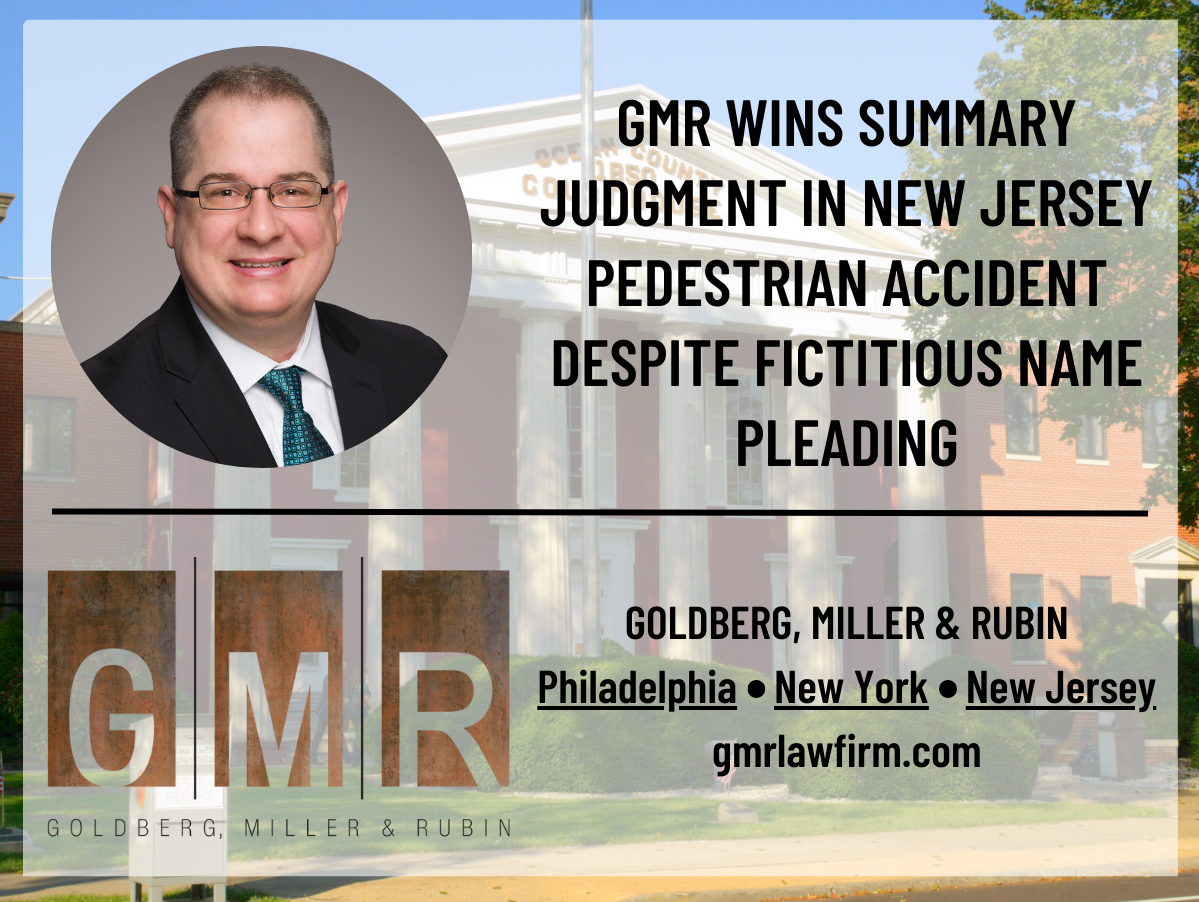Christopher Scott successfully had his clients dismissed from an Ocean County, NJ civil lawsuit on motion for summary judgment.
Plaintiff, a pedestrian, was injured in a 2-car motor vehicle/pedestrian accident. Plaintiff was standing on a sidewalk, when she was struck by Chris’ client after it was struck by another Co-Defendant. Plaintiff filed her Complaint within the applicable Statute of Limitations, but only named the Co-Defendant and other “John Doe” defendants. During discovery, Plaintiff took the position that some liability could be imputed against Chris’ clients. Plaintiff then amended her Complaint after the statute had run, naming Chris’ clients in place of the John Doe.
While a normally acceptable practice in New Jersey, Chris filed for summary judgment arguing the identity of his clients was known to Plaintiff within the Statute of Limitations as evidenced on the Police Crash Investigation Report; as such, Plaintiff’s failure to amend her Complaint before expiration of the statute rendered the claims out-of-time. Plaintiff opposed citing the court rule that fictitious placeholders are sufficient to preserve the claims and that it was from an avoidance of filing a frivolous claim that Chris’ clients were not originally named Defendants.
Chris appropriately argued the placeholder rule is for unknown parties, and the frivolous lawsuit argument was nonsensical as the police report clearly identified the striking vehicle/driver that actually struck Plaintiff and there wasn’t a court in the land that would see that as a frivolous claim in a personal injury matter.






